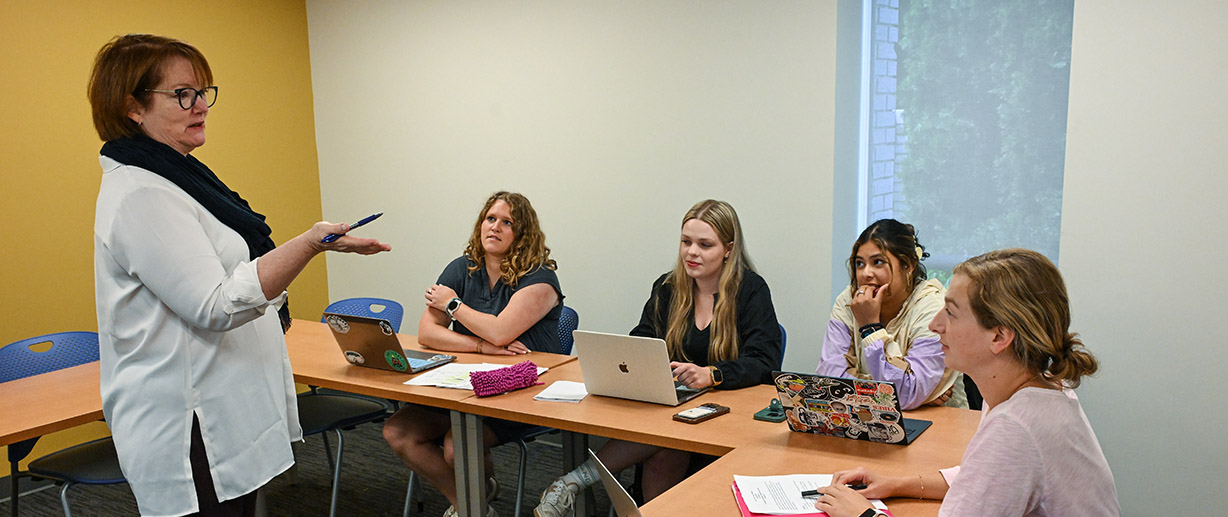By Ellie Norman ’25
Eliana Boone ’24 chose a concentration in Medicine and the Liberal Arts because she thought it “sounded cool.” She didn’t realize it would fuel her passion for emergency medicine and her desire to go to medical school.
“Going into emergency medicine means that I would come into contact with many different types of people,” says Boone, who just graduated with a major in biology and a minor in sociology and anthropology as well as the concentration in Medicine and the Liberal Arts.
Wofford had a Medical Humanities program that was started several years ago by Dr. Charles Kay, professor emeritus of philosophy, and Dr. Bob Moss, Larry H. McCalla Professor of Biology emeritus. As both professors approached retirement in 2019, the program was recast with the title of Medicine and the Liberal Arts.
“The Medicine and the Liberal Arts concentration began as a program to address the human needs of the medical system,” says Dr. Anne Rodrick, Reeves Family Professor of History, one of several faculty who teach a senior seminar class that is required within the program. “It has become a program that asks students to think about the human needs of health care at large.”
Rodrick explains the program is designed not only for students on the pre-med track, but also for those with various majors and interests in health care. The concentration requires several classes in diverse subjects, such as religious studies, government and philosophy. She says this cross-section of classes is required for students to fully understand the medical system from a global perspective.
“The main goal of this program is to help students approach the series of interactions to the whole human person,” says Dr. A.K. Anderson ’90, professor of religion who teaches courses that are required for the concentration.
Anderson says literature is also a key aspect of the program. It aids in a student’s understanding of the system from a psychological perspective, as well as the social sciences, he says.
“The books we have read in these courses have been from different cultures and perspectives, so it’s more about medicine worldwide versus just Western medicine,” says Boone. These texts are very diverse, but they have the same underlying tone — that there are different ways to think about medicine and that is OK.”
Dr. Ingrid Lilly, professor of religion who also teaches courses for the concentration, says students gain valuable experience that leads to a variety of opportunities.
“One of our students from last year is doing hospital chaplaincy training, which is a very interesting place to take this,” Lilly says. “Another one is getting a Ph.D. in physical therapy, and another is going to law school. These are just a few ways that students can pursue the knowledge they gained from the concentration.”
